The Kenova report finds security services did not stop some crimes in order to protect their agents.
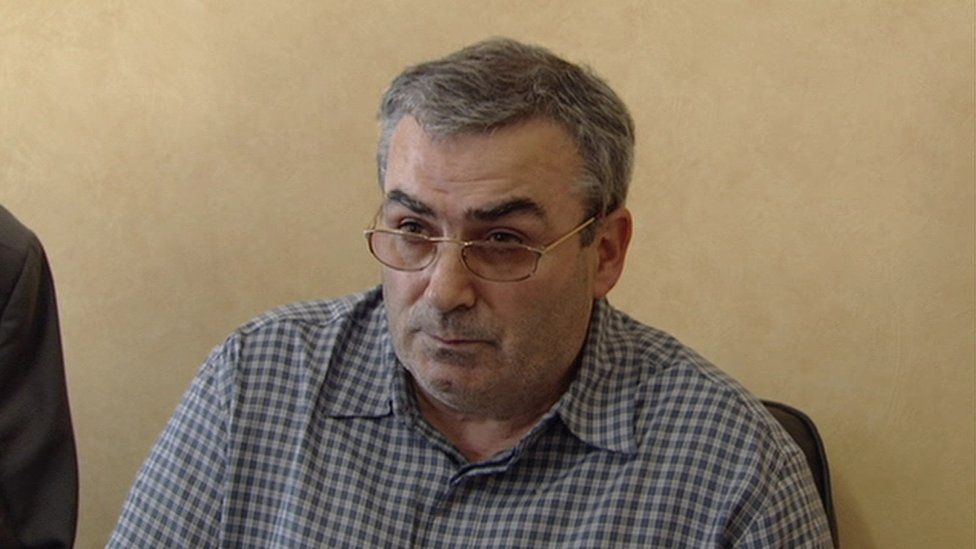
An Army spy operating at the heart of the IRA during the Troubles in Northern Ireland probably cost more lives than he saved, a report has found.
Operation Kenova investigated the agent known as Stakeknife.
It said speculation he had saved hundreds of lives was wrong and it was more likely it was between high single figures and low double figures.
It found the security forces failed to prevent some murders to try to protect their agents in the IRA.
The interim report called for apologies from the UK government and Irish republican leadership on behalf of the IRA.
Its author, Jon Boutcher, highlighted many failings of the security forces and the UK government but acknowledged that they were acting in an extremely stressful and violent environment.
He also said society owed “many agents and their handlers a huge debt of gratitude”.
Mr Boutcher added that it was the IRA leadership that “commissioned and sanctioned” the actions of its internal security unit and “committed brutal acts of torture and murder”.
The £40m investigation took seven years to examine the activities of Stakeknife, who was Belfast man Freddie Scappaticci.
Link to multiple murders
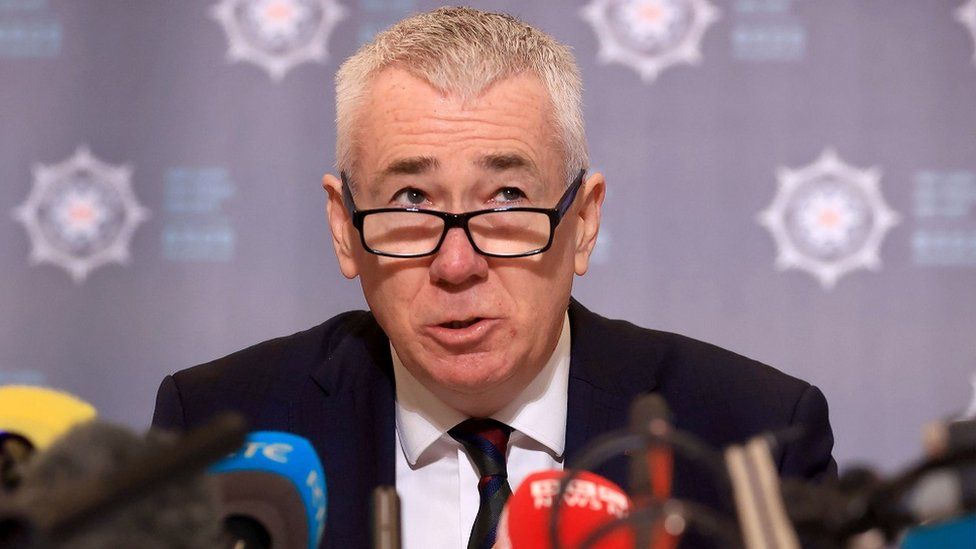
Image source, PA Media
Operation Kenova linked Stakeknife to at least 14 murders and 15 abduction incidents.
Despite it being widely known that Scappaticci was Stakeknife, the Kenova Report did not officially confirm that. A further, more detailed report is due to be published by the Kenova team later this year.
However, the interim report said Stakeknife was “undoubtedly a valuable asset” to the security forces who “provided high-quality intelligence about PIRA [Provisional IRA] at considerable risk to himself”.
The 208-page report added: “Albeit that his intelligence was not always passed on or acted upon and if more of it had been, he could not have remained in place as long as he did.”
Jon Boutcher, who is now chief constable of the Police Service of Northern Ireland (PSNI), said claims Stakeknife saved hundreds of lives were based on “unreliable and speculative” assessments.
Mr Boutcher said murders that could, and should, have been prevented were allowed to take place with the knowledge of the security forces.
‘You were not mad’
He said those responsible for murder were not brought to justice and were instead allowed free to offend again.
“Morality and legality of agents doing any harm – with the knowledge of the state – is something that we would never, ever allow today,” he said.
Mr Boutcher also referred to the decision not to confirm Stakeknife’s identity in his report.
“Stakeknife’s identity has been exposed to Kenova, subject to confidentiality which I remain bound by and I cannot make his name public without official authority,” he said.
Thus far the government has refused to give such authority.
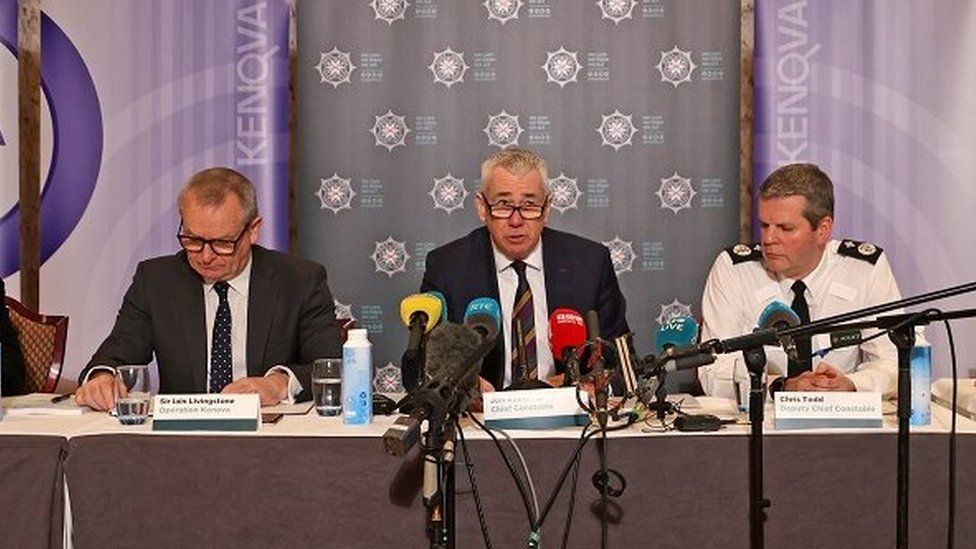
Image source, PA Media
But Mr Boutcher added that in his view this position was “no longer tenable” and he expected the “government to authorise Kenova to confirm Stakeknife’s identity in the final report”.
Referring to Stakeknife’s victims, Mr Boutcher said many of them had endured “endless delays, setbacks and unfulfilled promises in their search for the truth”.
He said his report confirmed what many families had suspected – patterns of state intervention and non-intervention in the torture and murder of people accused of being state agents during the Troubles.
“You were not mad. This was happening and this should not have happened,” Mr Boutcher told them.


‘Touting was the ultimate sin’
In many ways, this set out to be a report on Army intelligence and MI5 and the operation of Stakeknife.
But Jon Boutcher pulled no punches when it came to the conduct of the Provisional IRA and its internal security unit.
He has asked for some form of apology from the republican movement for what he felt were abhorrent actions by the IRA during the Troubles.
When I mentioned this to senior republican sources a few weeks ago, they said: “But the IRA are off the stage”.
So, I think that means any form of words is likely to come from Sinn Féin.
We will be keenly watching how Sinn Féin respond on behalf of the republican movement and whether any apology comes up to the bar set by Jon Boutcher in this report.
A lot of the apologies post Good Friday Agreement have been catch-all apologies addressing all deaths in the conflict.
I think what Jon Boutcher is looking for here is a more specific apology – it’s an apology which is basically asking the republican movement to disown a policy which it felt was entirely justifiable in the course of a conflict.
Touting was the ultimate sin.

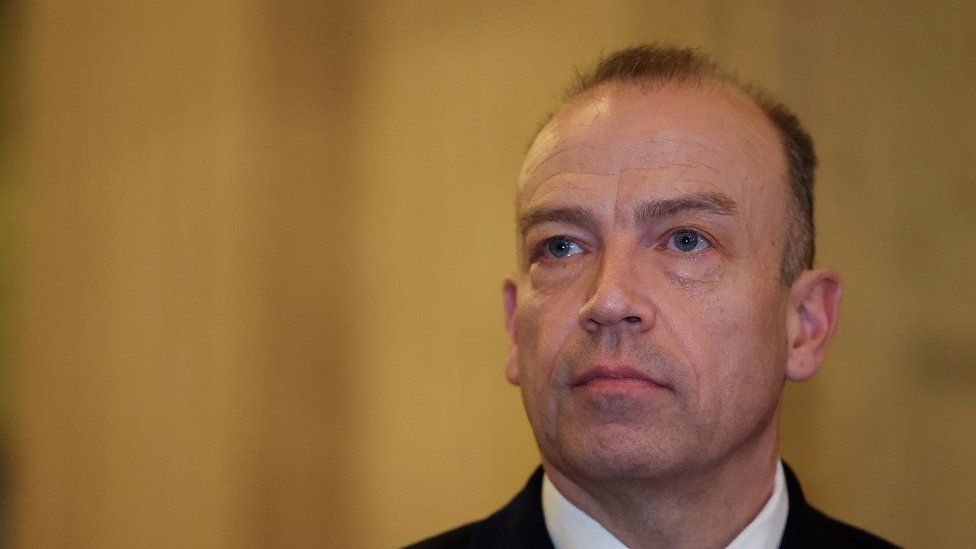
Image source, Press Eye
Northern Ireland Secretary Chris Heaton-Harris said the report “contains several specific, very serious allegations that remain subject to consideration by the courts”.
“It would not be right for the government to make any comment on the substance of the interim report until the conclusion of litigation related to it,” he said.
“I would like to put on record again my deepest sympathy with all the families who lost loved ones during the Troubles – including as a result of the actions of the Provisional IRA,” he added.

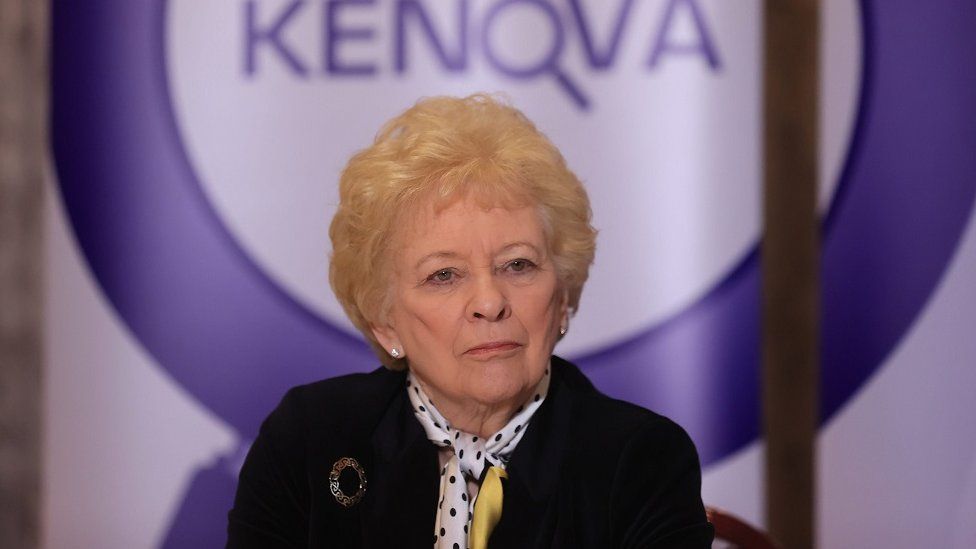
Image source, PA Media
Former Police Ombudsman, Baroness Nuala O’Loan, said she she was impressed with how Jon Boutcher and his team had been able “to resist all attempts to stop them and to get the information they needed”.
She called on the British government to make an apology, and said she did not believe it was “good enough” for that apology to come from the Northern Ireland Secretary of state.
Baroness O’Loan said this it was a “national issue” with the IRA and other terrorists operating throughout the UK.
What was recommended?
The report made 10 interim recommendations, including:
- An apology from the UK government to bereaved families and surviving victims affected by cases where an individual was harmed or murdered because they were accused or suspected of being an agent and where this was preventable
- An apology from the republican leadership on behalf of the IRA for the IRA’s abduction, torture and murder of those it suspected of being agents
- The longest day – 21 June – should be a day of remembrance for everyone injured or harmed during the Troubles

Scappaticci died in England in 2023 at the age of 77.
The report said speculation he was still alive was “unhelpful”.
Mr Boutcher said: “I have independently verified when, where and how Mr Scappaticci died and can confirm he died of natural causes following an illness.”
Prior to his death, the Public Prosecution Service (PPS) was considering whether to charge Scappaticci with murder and other offences, after receiving files of evidence from the Operation Kenova team.
Mr Boutcher wrote in the report: “I believed (the files) contained strong evidence of very serious criminality on the part of Mr Scappaticci.
“We first attempted to submit these in October 2019 and it will never be known whether an earlier decision by the PPS [Public Prosecution Service] would have resulted in prosecution and, if so, conviction.”
Nobody will be prosecuted as a result of the report.
In December, the PPS said 15 other people would not face any action.
Following this, there were further decisions not to prosecute anyone, including people who are alleged to have been IRA members and retired soldiers involved in agent handling.
Who was Freddie Scappaticci and what did he do?
This video can not be played
To play this video you need to enable JavaScript in your browser.
Freddie Scappaticci joined the IRA in the 1970s and towards the end of that decade was recruited by the Army as an agent.
Throughout the 1980s he operated within the IRA’s so-called internal security unit – known as the “nutting squad”.
Its primary purpose was to identify informers who were then kidnapped, tortured and shot dead.
Scappaticci himself was implicated in multiple killings while at the same time working as a spy, passing on intelligence about the IRA.
The IRA became suspicious of him around 1990 and stood him and his unit down.
He was unmasked in the media in 2003 and although he denied the allegation, he moved into hiding in England where he died in 2023.
What else does Operation Kenova report say?
The investigation found that the use of agents by security forces “undoubtedly saved lives during the Troubles” and “significantly degraded and debilitated the effectiveness of terrorist groups”.
“Less frequently”, it said, preventable and serious crimes took place and went unsolved and unpunished as security forces tried to protect their agents.
These included:
- Murders committed by agents – including some cases where one agent murdered another
- Murders of alleged or suspected agents, including cases where the murder was carried out as a punishment and to deter others from acting as agents – in some cases the victim was not actually an agent
- Murders in some of these cases which were known about by the security forces in advance and could have been prevented
The report acknowledged that some of these case were “uniquely challenging” for the security forces, who were acting under “exceptionally stressful conditions and extreme time pressures”.
The report said victims and families were failed both by the authorities and their communities, that victims were not protected and terrorists were not subjected to criminal justice.
It said the republican leadership had “failed to acknowledge and apologise for PIRA’s murderous activities and the intimidation of families”.
The IRA’s so-called internal security unit which Scappaticci was a member of, it noted, was responsible for “inhumane and degrading treatment and murder, including of children, vulnerable adults, those with learning difficulties and those who were entirely innocent of the claims made against them”.
It said the unit sometimes accused people of being agents because its members wanted to “eliminate rivals” or kill the partners of those involved in extra-marital affairs.